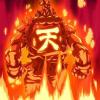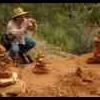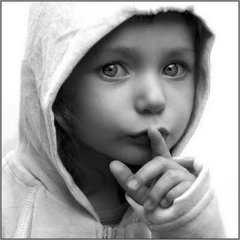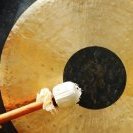Search the Community
Showing results for 'Dream'.
Found 7,591 results
-
Are you aware of anyone here on TTB who understands the nature of emptiness? One is not a Bodhisattva without such realization. As for peers,...although it is obvious that you are far too belef-based to be a peer,....there are several who visit this forum who already have uncovered the Second level of Compassion (as mentioned in an above post) and are likely just waiting to see if the bullies and Spoilers will subside enough to allow them to have a meaningful dialogue. An awakened being, which you felt needful to denigrate, is simply one that has realized absolute bodhiciita. Criteria is available to discern anyone suggesting that a level of absolute bodhicitta has been comprehended,...for example, one who has realized absolute bodhicitta, thus the nature of emptiness, can easily discuss the following statements: *Treat everything you perceive as a dream. *Find the consciousness you had before you were born. *You will never understand Who you are, until you realize When you are. *There is no Present in Time. "humility is just a degree of pride." Wei Wu Wei
-
"Relative and absolute, These the two truths are declared to be. The absolute is not within the reach of intellect, For the intellect is grounded in the relative." Shantideva Sentient beings, especially Spoilers in service to the Relative, see real compassion as a threat against the sentience of their ego. And thus, Spoilers will continue their spoiling, advocating the contrived, coarse compassion of samsara, which appeases, moderates, and coddles sentience. Theirs is the lowest of the Three Compassions. To a lesser extent, this thread was begun to expose the object-ive compassion of Spoilers (those who try to suppress truth, through ad hominem, ridicule, fear, and sycophancy), but moreso for those who have observed the suffering inherent in the dream, and ready for the Compassion inherent through the Dharma. The Third level of Compassion, that which only arises through the realization of Emptiness, obviously cannot be discussed with Object-ive Minded Spoilers, but only those who wish to explore what is beyond ego. Emptiness (the Perception of the Profound) is not a theory,...but the realization of how things truly are. Upon awakening, Sakyamuni shared what is known as the first Turning of the Wheel,...that suffering is a consequence of the desire for things to be other than they are,....and that sentience cannot see things (Suchness) the way the are. Again,...the only definition of a Bodhisattva is one who has realized that the Nature of Phenomena is Empty. Most other attributes, usually contrived by Sentient Beings to make their beliefs more palatable, are nonsense. Sentient Beings hear the term Bodhisattva and think of Mother Teresa,...Mother Teresa was not a Bodhisattva. Even HH Dalai Lama is not, by his own words, a Bodhisattva, and has said (see the film Dalai Lama's Four Noble Truths) real compassion is impossible without the realization of emptiness, and by consequence, Dependent Origination. I understand that the many Spoilers here at TTB, seek to bully, disconnect, disempower, ridicule, intimidate others because of their fear of letting go of their sentient based beliefs that step between them and their authentic experience. The subject of emptiness (non-dual awareness) is far too nonconceptual for them. I understand that many flee from threads when these suppressor Spoilers come attacking,....instead of dialoguing on the subject of the thread,...both in vicious ways, and by posting off-subject comic like nonsense. Their various tactics are all predictable. However, for those interested in going beyong, going further, to where the going no longer is, you must consider the price of being a victim of Spoilers. Really observe who are the "open-minded" posters,..by way of how they address the subject in a meaningful way,...not by mindlessly attacking the messenger. I'm quite willing to discuss Emptiness with any who are interested. It's quite a simple subject for the open-minded. If you feel that you're getting an emotional charge about it,...then one merely works on where/why such a charge is arising. Emptiness cannot be realized through the conditions of beliefs.
-
Ah, true on some level. On some other level, Compassion seeks out the lowliest places, places where its needed, without a 'we' having to ask for its presence. It works mysteriously, akin to the 'holy spirit', i guess. This is evident in those who experience profound turnarounds in their lives, usually at the precipices of utter desolation and on the brink of complete abandonment of clutching at something called 'life', does Compassion manifest. She can come in many forms, in as many 'faces'. Not the only times when She manifests, though. The chirping of a bird... that, for some, is a work of Compassion too. And, telling someone to wake up from the dream that he or she is a bodhisattva, that is also an activity borne of Compassion. Its not always necessarily soft, but the essence of its arising is always at the heart.
-
Many here on TTB hold to various contrive fantasies regarding what is a Bodhisattva. I've constantly pointed to authoritative definitions, yet many who read them insist that they themselves are enlightened, and thus have no use for C&P quotes of idiot charlatans. One of these self ordained New Agers implies that real compassion is turning the other cheek for your tormentors. Others have even more fanciful delusions,...like Thich Naht Hahn proselytizing that Jesus was like Buddha. The reality is that Believers believe whatever makes their delusions more palatable. For them, it is doubtful that they will ever accept the real definition of Bodhisattva, or compassion beyond their relative, sentient perceptions. For those seriously interested in what a Bodhisattva is, is not so succinct, and quite arduous to explain, because humanity as a whole are not prepared to receive such an appreciation of reality. What reality? The reality that a Bodhisattva sees,...which according to the Eight foremost Bodhsattvas, arises through the perception of profound Emptiness. Thus, teachers such as Robert Thurman, an esteemed student of HH Dalai Lama, stated, "Buddhist teachings on compassion are grounded in the direct realization of Emptiness; without which, compassion is impossible." And what does HH Dalai Lama say about compassion? "If I have any understanding of compassion..., it all comes from studying the Bodhicharyavatara" HH Dalai Lama What does the Bodhicharyavatara (Way of the Bodhisattva) say? "The whole of the Bodhicharyvatara is geared toward prajna, the direct realization of emptiness, absolute bodhichitta, without which the true practice of compassion is impossible." Of course, to many TTBers, too many to name here, but you will come upon their "spoiler" posts, those above authorities are wrong. Lao-zu said, "If you want to awaken all of humanity, then awaken all of your self." But these "spoilers" have no desire to awaken,...they insist that others follow their beliefs. Those seriously interested in the term Bodhisattva agree that bodhi is a feminine noun expressing a non-cerebral mindful understanding of the nature of things, and sattva, indicating the beingness through which that is experience, and is motivated by pure compassion. Through this pure compassion, a Bodhisattva makes a committment to suspend full enlightenment until all sentient beings have been liberated from the suffering brought about by their attachment to sentience, which the Eight foremost Bodhisattvas defines as the 6 senses. People generally believe they understand what that above paragraph means; yet they do not. First, bodhi is a feminine noun, not a masculine one. It is Yin, not Yang; expansive, not contractive. Few people on this planet have a clue to Who's Who in Duality, let alone its significance. Without understanding Who's Who in duality, the realization of Emptiness is impossible,...and without the realization of Emptiness, real compassion is impossible. A Bodhisattva sees the world through compassion, however the compassion of a Bodhisattva is much different than most can comprehend. Again,..."Buddhist teachings on compassion are grounded in the direct realization of Emptiness; without which, compassion is impossible." The compassion of a Bodhisattva is not some sentient feeling of sympathy, pity, despair, or Abrahamic religious definition. A Bodhisattva has an understanding Dependent Origination,...that is, not only why and how Form is Empty and Empty is Form,...but that feelings, etc., are also empty. It explicitly says so in the Prajnaparamita,...and the prajnaparamita is the process all Bodhisattvas used to realize emptiness, so they could uncover real compassion, without which, they are not Bodhisattvas. We can define a Bodhisattva as a being who, upon realizing Dependent Origination (which can only be understood through emptiness), forgoes enlightenment for the sake of those who consider themselves separate from Others. Seeing the illusion as illusion, Bodhisattva's committ themselves to the liberation of humanity's sentience; which is something that human beings hold dear. In response, most Sentient Beings will attempt to harm, injure, and even kill, such liberators. A true Bodhisattvas would not be perceived as wonderful people leading very moral and exemplary lives. A Bodhisattva is an assassin, who challenges or shines light upon every aspect of beliefs and faith-based delusions. A Bodhisattva can be recognized as one who is intolerant of all conditions that step between sentient beings and their direct experience. A Bodhisattva understands that an experience born of belief can only be experienced through the condition of that belief. Anyone claiming to be a Bodhisattva, without a full understanding Emptiness,...that is to say, the understanding how things really are (beyond the perception of sentience), is not a Bodhisattva. The Heart Sutra, which is the heart essence of the Prajnaparamita, is quite implicit about that. The Heart Sutra is how a Bodhisattva sees. One is not a Bodhisattva until one sees as a Bodhisattva. One does not see as a Bodhisattva, until emptiness (Perception of the Profound) is realized. Although many have recited the Bodhisattva vow,...of the thousands of posts I've read on this forum, there is only one Bodhisattva that posts on TTB. The Bodhisattva Path is one of cultivating bodhicitta,...whereas a Bodhisattva is one who participates with bodhicitta. Bodhicitta is the awareness that everything a sentient being perceives is a dream. Chögyam Trungpa, who said that real compassion is not having any hesitation to reflect your light on things,... it does not discriminate whether to reflect on a pile of shit or on a pile of rock or on a pile of diamonds,...also said, "May all beings be free from suffering and the root of suffering, May the dark ignorance of sentient beings be dispelled, May all beings enjoy profound brilliant glory."
-
finally somones talking about the nagual way of being. the books by carlos casteneda started my awareness training that until reading this thread didnt realize how much they changed my way of thinking. after the first time i awoke within a dream i was hooked. and to this day i still use the techniques from those books.
-
Here I've taken the time to give those who might want to start a cult some useful advice and you've all turned it into a joke. Tsk. Tsk. I hope this doesn't dissuade the serious cult leaders from pursuing their dream. Aaron
-
I too have spent many hours with the don Juan teachings. To me, it is the same as a third eye. I certainly envy his ability to dream and even admit others into his separate reality.
-

Confirmed Taoist Master Wang Liping Guiding RETREAT
LongMen replied to kathyli's topic in Daoist Discussion
I accidently find a website in English and Chinese, http://jenyoo.blog.163.com . One paper named "April 2012 at Jinhua Temple – A Taste of Monastic Life", is interesting. http://jenyoo.blog.1...20121044173835/ ;;;;;;;;;;;;;;;;;;;;;;;;;;;;;;;;;;;;;;;;;;; 2012年金华道家庙之旅 -- 修道生活的滋味 April 2012 at Jinhua Temple – A Taste of Monastic Life 海外老子学院学生 撰写, 摘自 http://laoziacademy.us/201204paper.htm Student of Lao Zi Academy (http://laoziacademy.us) 经过了漫长的国际旅途,我到达了上海国际机场,准备好了下一程的和道家师傅--王老师的精神之旅的修行。出了海关,我就和凯茜电话 联系上了,她恰好正在开往机场的磁悬浮的车上来接我。尽管旅途疲惫,但我急迫的想赶快到达金华,所以我选择了自己先走一步去庙里。凯茜给我用中文写好了纸条,还给了我一步中国的手机(怕我万一走丢了)。凯茜真是对我太好了,她把我送上去上海火车站的换乘地铁站并亲手将她买好的火车票给我。我们在“人民广场”站分手,她还要返回到浦东机场去接其它国外的学员。 After a long flight I arrived at Shanghai airport, ready to embark upon yet another spiritual seminar with Master Wang. Once through Shanghai Pudong airport custom gate, I phoned Kathy Li (http://laoziacademy.us) who was take the maglev train coming to pick up me. I was anxious to make the journey to Jinhua so although tired I elected to make my way to the temple. Kathy wrote a note for me in Chinese and also gave me a Chinese cell phone (in case I got lost). Kathy was so kind got me into the metro after handing me a ticket she had purchased. We parted ways at People's Square as she had to return to the airport to pick up other seminar participants. 对于我来说,历险旅程开始了!这是我第二次来中国,所以蛮激动的。凭靠看那些简单的英文路标,我最终找到了上海南站并开始了3个半小时的旅程。正好中午1点班我上的火车,我极力将时差驱赶走,打起精神浏览和注意一路上各种景色和声响。这个神奇国度的各种景象和声音深深的吸引了我。 For me the adventure was about to begin! I was in China once again and was full of excitement. Using a bit of sign language when necessary, I eventually got onto the train at Shanghai South Station to begin the three and a half hour journey to Jinhua. It was right around 13:40 by the time I boarded the train. Jet lag was kicking in however that was not enough of a reason to miss out on the sights and sounds along the way. My attention was fully engaged to capture as much of the sights and sounds as possible, of this country that fascinates me so much. Upon arriving at Jinhua, I was met by Lian at the train station. Somehow managing to exit out of the entrance rather than the exit but fortunately I had a phone on me. Soon we were driving through Jinhua and up the bending mountain roads toward the temple. Lian and I spoke of my journey and previous experiences related to training. All along I kept thinking that the day I'd been waiting for over the past weeks had arrived. Evening was setting in when we arrived at the temple. Lian gave me the key to my room and announced that dinner had begun at 18:00, that we should still be able to make it since we'd arrived only a few minutes after. That was welcome news. I quickly dropped my bags in the room and headed out to the dining hall. It was great to see Master Wang once again. In a warm and welcoming fashion, Master Wang got up from his chair and approached me to say hello. I shook his hand and regretted much not being able to talk to him in Chinese about how good it was to meet again. Soon I found myself exchanging greetings with old friends, lots of hugs and smiles. With such lovely aromas in the air, it did not take long to settle down for dinner. The long day of travel was slowing drawing to a close. The April 2012 seminar was a special event for those of us travelling from outside China to train with Master Wang. Not only was it the first seminar of its kind at this temple, it was well attended, with over 20 students arriving from many nations. Upon arrival, we were issued with beautiful blue Taoist garbs, an orange long sleeve shirt and a participant card both with the inscriptions “Advanced Taoism Inner Alchemy Retreat, 4.2012, Jinhua China” in English as well as in Mandarin. The new “Alchemy House” was well equipped with familiar comforts including many blankets and LAN internet access. All was organised and set to allow us to proceed well during our seminar. With a few exceptions, each day began with a familiar pattern of early morning (06:00) walking practice which sometimes included tree practice (ping heng gong), breakfast at 07:30, lectures starting at 09:30 with meditation/sitting thereafter, lunch around midday, afternoon rest, afternoon lecture starting at 15:00 with afternoon meditation right after and dinner at about 18:00. Most evenings we either studied or practised ping heng gong (tree practice) after dinner at about 19:30. On a number of occasions while performing Ping Heng Gong at night on pine trees on the temple grounds surrounded by dark mountains (no street lights anywhere!!) one could hear the sounds of traditional Chinese puppet show music coming from the small village at a lower altitude below the temple. This simple event really made a big impact on me – making me realise where we were at – in a countryside Taoist temple, far from the flashy lights and noisy sounds of big cities Training at a temple had a different feel to it. Much of the daytime brought constant reminders of the temple environment through the drumming and singing that accompanied daily ceremonies. There was an air of religion and worship around us, the typically dressed Taoist priests, the incense sticks...even the very buildings of the temple grounds held us to this impression. With the exception of a particular day in the Taoist calendar, each meal time begun and ended with thanksgiving in the way of singing in front of an alter prepared to offer gratitude for the food we were about to receive. The temple monks and nuns were gracious in their bearing and friendly toward us. For me, a significant highlight of the seminar was partaking of a tea ceremony after lunch on day four. The monk who led the ceremony simply would not stop being kind to us. Tea making is an entire art onto itself, using different pots and cups for specific kinds of teas. The five seminar participants gathered there were given a taste of “Puer” and another kind of tea called “Tie Guan Yin”. The former is an aromatic, dark brown brew which tastes really good and which, when prepared correctly, seems to develop a unique surface which is difficult to describe. It was made in an exquisite brown pot built from a special material which was translated to us as “purple mud”. To drink “Puer”, you must first look at it, then smell it before drinking it. The second tea was just wonderful! I have never had anything quite like it before. It smelled ethereally good and tasted just as great. This tea, made from a special green leaf, has to be made in a white tea pot and poured into a white cup. It is light green in colour, very nice to drink! Other seminar participants had the opportunity to attend temple ceremonies as well as receiving readings of their fortune. There always seemed to be events going on with lots of visiters frequenting the grounds during the seminar. Master Wang was very accessible to us. In his now familiar jovial and very warm manner he would mix in with us for the morning walk and while we studied tree practice forms in the lecture hall at night. We even got to see a very cool demonstration of Chen style tai chi from one of Master Wang's senior Chinese students, upon Master Wang's request. During the day, we received very interesting transmissions during the lecture sessions. Even the lecture materials which initially seemed to be familiar were taken to a higher level of explanation. It is not to say that due to Master Wang's cheerful nature many of us did not suffer the customarily painful sitting sessions. Quite the contrary, in fact there were particular days when a good lot of us agreed that the pain endured in the sittings was strong. Master Wang went into fascinating details about the nature of reincarnation energy and how by experiencing pain we gradually release this energy. Master Wang explained what happens as reincarnation energy is eliminated, leaving physical body energy and universal energy. Pain is a gateway to releasing the binds of reincarnation energy. This changes us, getting rid of certain traits inherited through our ancestry. By going through this pain when doing the sitting, we may be able to reach a high level in our practice. It will be impossible to complete an account of the Jinhua seminar experience without mentioning the visits to the Chao-Zhen and Shuang Long caves. Personally, caves are a big favourite so it was pleasing news to learn that these two events were on the itinerary. Meditating in the Chao-Zhen cave was particularly special, fulfilling a long-held dream. During this experience, I was able to locate my 'prenatal direction' as well as harmonise with the rhythm of the mountain. It was also possible for me to “look through” the mountain to see what was outside. The best part of this experience was being able to “see” a fairy during the sitting, and to compare notes with another student who also had similar experiences. The visit to Shuang Long cave was mainly for sightseeing, as this very amazing place was also being visited by scores of school kids as well as other citizens. Master Wang showed us the place where Ancestor Lu (Lu Tung Ping/Lu Dong Bin) carried out his meditations, and many of us posed there for photos, some sitting cross-legged. For me, the sight of a waterfall inside a cave deep underground just brought goose bumps all over. It must have touched upon some primordial memories! Alas, all events in our time-bound existence come to pass. The seminar came to a close before we realised it. At the end of this seminar Master Wang issued out certificates to all participants, something which I believe was also a first of its kind. For me, the certificate giving ceremony felt like being back in school again. Although I cannot (yet) read the Chinese characters, I am very proud of my certificate. This entire experience in China has encouraged me to continue to take my training seriously and to return to efforts to build a working knowledge of Mandarin. The occurrence of this wonderful event is relying on the hard work of Lao Zi Academy. The collaboration among overseas Lao Zi Academy, Longmenpai European and Jinhua Taoists Association, made this seminar happened. Special thanks to Master Wang, to Jinhua Taoist Association, to Lian, Kathy and to all who in diverse ways put in their time and energy into organising this seminar. It is my hope that in future, others will also have the opportunity to attend such a seminar for its spiritual and cultural value. -
This looks interesting: dream machine
-
I'd say it all begins with emptiness. Training to have a quiet mind is thee prerequisite. Because there are the 5 thieves we begin by sitting with a simple object of concentration be it counting breaths, mantra, or mental trick of letting thoughts flow away of there own volition. From there we continue until we sit thoughtless for extended amounts of time. To me the goal is keeping that state in throughout the day. I think K. has described it beautifully. I think the practice of 'perceiving everything as a dream' is good if it keeps ones focus open and not caught up in maelstrom of thoughts, but reality is the chair really is a chair, you are looking at a computer screen right now, otherwise why the hell am I typing?? So its a useful practice but its not reality. In a lucid dream you can fly, in reality you can't. Strive for emptiness; thoughts, planning and logic are nifty tools, but they are not meant to be our every day state. We've confused our tools with our selves.
-

Introduction to Dzogchen Retreat with B Alan Wallace
Tibetan_Ice replied to konchog uma's topic in Buddhist Discussion
Hi C T In an effort to establish some common ground, I have found some definitions which correspond to my usage of words and current belief system. Hopefully they will shed some light on this topic. You said: In support of my definition of Ground, or Primordial Ground, which is rigpa, I would like to present this text: link: http://www.rigpawiki...hp?title=Ground Let's examine the first statement: "The ground of Dzogchen is the fundamental, primordial state, our absolute nature, which is already perfect and always present." According to this statement, the ground of Dzogchen is the primordial state. And, according to the next statement further on "In the general Buddhist teachings, the Ground is also referred to as the buddha nature." So it follows that realizing the Ground is realizing Buddha nature. I think that you are looking at the sequence of "Ground, path and fruition" as a linear progression of practice, whereas I am using the term Ground in order to identify the state, regardless of the method of arriving at that state. Therefore, I am not confused, nor am I confusing the identification of the state of rigpa with the means of arriving to the state of rigpa. "Ground, path, fruition" is the method. Primordial Ground is the imutable, unchanging state. Primordial Ground does not grow or become by means of path or fruition, it is always constant. You said: So yes, rigpa is Buddhahood. It is not a sham. I don't see any logic or justification for your statement other than it seems to confuse the method with arriving at the Primordial Ground, with the definition of the Primordial Ground (or rigpa). What part exactly is the sham? Perhaps the sham is when a guru performs a transmission to give you a taste of rigpa, and when it doesn't work, the guru blames it on your past samskaras and karmas? The other vague argument I have is that Dzogchen is unlike conventional Buddhism in the sense that there is no path and fruition. Dzogchen cuts directly to the Primordial Ground, the path is a non-path and the fruition is realizing that there is no path or fruition needed. Bang! You're there. Apparently, this Dzogchen point of view has been greatly criticized by conventional Buddhists: from Heart Drops of Dhamakaya: I think this is pretty good argument against relying on a path and a stage of fruition, don't you? In my simple, very stupid (but clear) interpretation, Dzogchen is: Step 1: Realize that this life is a dream Step 2: Adopt the view Step 3: Never forget it, even for a moment. I don't like calling Mind "rigpa". I also don't see how you can say that "There is nothing special at all to be experienced when the guru blesses the student to recognize Mind (its true nature, that is)" When I was "blessed" by Jesus in a church a long time ago, it was so profound that it was bar none the biggest event in my life. It was the first time I could not physically move no matter how hard I tried. Waves of energy were pouring through me. I split apart into various components with large amounts of space in between. My eyes cried, the bliss was tremendous, I felt so insignificant compared to the power that Jesus has, that I admit it, I am nothing. Just a little spec of light. It was mind blowing, gut wrenching, ecstatic, holy, sureal and miraculous. It was the farthest thing away from "nothing special" that I can think of. Yet you say that "There is nothing special at all to be experienced when the guru blesses the student to recognize Mind". Has somesome sold you a bad deck of cards? I mean no offence here. I'm just trying to illustrate that there is a vast difference between experiences, and I would expect nothing less from realized gurus from Tibet. Gurus who can walk through walls, draw a picture of a cow on a wall and then proceed to milk it, evaporate into a bolt of rainbow light... Surely they too must be able to grant a taste of the Primordial state. I know it must seem like I'm just contradicting everything you are saying, and I admit, it does seem like that to me too. Humility does have it's place, but isn't there at least some obligation to the rest of the sentient beings to impress knowledge thereby enabling a speedier liberation? And aren't open demonstrations part of that display? Sometimes you have to roar like a lion, don't you? Make a hard effort to grab the golden chalice with all your heart and just go for it! Thank you very much for disclosing your experience. Yes, I agree. "My" becomes meaningless. In the handful of mystical experiences (I call them satori moments, probably erroneously) that I have had, there was only "ME" or "US" or one. I was the bathtub, I was the soap, I was the water droplets, I was looking back at me. TI- 451 replies
-
- Alan Wallace
- Dzogchen
-
(and 1 more)
Tagged with:
-
No,...The Heart Sutra implies that when the 5 skandhas are seen as the emptiness they are, phenomena is seen subjectively for what it is (that is empty), yet the object does not dissolve. This does not mean that the object ever existed,...it is merely empty,...always was, always will be. In a lucid dream, we can see that the objects in the dream are empty, although to the 6 senses, the objects appear to exist. Emptiness is the real nature of all phenomena. Our liberation from sentient beingness is not in its dissolution, but the realization that sentient beingness is empty of any nature of its own. As the Heart Sutra implies,...empty and form are not separate,...nor is empty separate from feeling, discrimination,formation, and consciousness,...all are empty. Karl Brunnholzl wrote, "Emptiness is not some kind of spiritual atom bomb that destroys everything that we know, though it may seem that way sometimes because it crashes the hard drive of our ego-mind with all its stored belief systems." This is why the first Absolute Bodhicitta lojong says, "Look at everything you preceive as a dream." When you do,...that is, can perceive everything as a dream, it uncovers absolute bodhicitta or realization of prajnaparamita. To understand the 4 Noble Truths is to appreciate emptiness. To understand Dependent Origination is to appreciate emptiness.
-
IF you can keep your head when all about you Are losing theirs and blaming it on you, If you can trust yourself when all men doubt you, But make allowance for their doubting too; If you can wait and not be tired by waiting, Or being lied about, don't deal in lies, Or being hated, don't give way to hating, And yet don't look too good, nor talk too wise: If you can dream - and not make dreams your master; If you can think - and not make thoughts your aim; If you can meet with Triumph and Disaster And treat those two impostors just the same; If you can bear to hear the truth you've spoken Twisted by knaves to make a trap for fools, Or watch the things you gave your life to, broken, And stoop and build 'em up with worn-out tools: If you can make one heap of all your winnings And risk it on one turn of pitch-and-toss, And lose, and start again at your beginnings And never breathe a word about your loss; If you can force your heart and nerve and sinew To serve your turn long after they are gone, And so hold on when there is nothing in you Except the Will which says to them: 'Hold on!' If you can talk with crowds and keep your virtue, ' Or walk with Kings - nor lose the common touch, if neither foes nor loving friends can hurt you, If all men count with you, but none too much; If you can fill the unforgiving minute With sixty seconds' worth of distance run, Yours is the Earth and everything that's in it, And - which is more - you'll be a Man, my son! Kipling's the man! *respect*
-
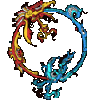
Introduction to Dzogchen Retreat with B Alan Wallace
konchog uma replied to konchog uma's topic in Buddhist Discussion
TI, thank you so much my friend, such a helpful post. I Greatly appreciate you taking the time to comment and point out all those resources! wow... when i was in retreat last month i felt that my thoughts were the enemy, that they were destroying my meditation! i perfectly well know better, and thought it was rather odd to find such a view taking hold in my mind. I have also in the past encountered heartbreak for no reason! i chalked all this up to astrological alignments, or lack of sleep, but its interesting to see them listed as signs of progress. My curiosity is roused, and i intend to read that book. One of the affinities i find with Wallace is his deep respect for shamatha. There is a tragic movement (i think moreso in the west) to beeline for advanced practices and for the initiated, to "collect tantras" as Trungpa Rinpoche put it... i have met people who, when i tell them i will be leading a shamatha meditation, say to me "oh, no. i sit vipassana!" with some kind of attitude like shamatha is for babies. All the traditional teachers who i have ever heard talk about it advocate regular and sustained shamatha practice, and i feel good knowing that BAWallace has thrown his lot in with the traditionalists. thanks (again ) i have never read him, just listened to his retreats.. i think i will start with Stilling the Mind tho, i feel drawn to it wow i used to lucid dream almost every night, before i started experimenting with cannabis. Since i stopped smoking, i have been meaning to get back into it, that book might be just what i have been looking for! Awesome a lot of people recommend that Norbu book, its on my list, and thank you again for all those recommendations and helpful advices. yes his explanation of rainbow bodies was illuminating for me too.. i had read about a woman who was intruded upon in the 5th day of her 7 day rainbow body process and it was said that her arms and legs were cast about, not connected to her body, but there was no blood, just light and rainbows coming out of her joints and going everywhere... and i have also read about a tibetan under house arrest who was reported by chinese authorities to by tiny like a child when they checked on him, and that freaked them out, so they went back a week later with a team and all they found was hair and fingernails. So i found that confusing until Wallace explained the 3 kinds of rainbow passing. Awesome stuff. Didn't Wallace say that only Padmasambhava and Garab Dorje and maybe a handful of others since have attained the "pop" you describe? many blessings TI- 451 replies
-
- Alan Wallace
- Dzogchen
-
(and 1 more)
Tagged with:
-
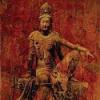
How would a virtuous person act in this situation?
Vmarco replied to Subtle's topic in General Discussion
Most people are inconsiderate,...not purposefully,...they're just self-centered,...you can observe it right here at TTB. Most people are so caught up in a dream, and there is little, if any awareness of others. "All the joy the world contains Has come through wishing happiness for others. All the misery the world contains Has come through wanting pleasure for oneself." Shantideva It is not accurate that your neighbor bangs on the walls all day. Focus on when they do not,...and then, preferrably with a pressure-bass, blast noise towards their lair,..especially when they are watching their favorite mindless TV show, or having sex with themselves,...and train them to be aware of apartment living. Most important,...do it lovingly,...inconsiderate people are as sleep-walkers,...so aborbed in their own dream it's comical. You'll never wake them up,...only they can do that,...but you can play with them in a loving way,...no need to get upset with those who are asleep,...they're asleep. -
It is amazing how caterpillars attempt to define what a butterfly is,...as if one can become the other,...or even imagine such. But yet, we live in a world where butterflies are defined by caterpillars. The truth of butterflies is this,...they are awake,...and do not untransform back to caterpillars. Butterflies are caterpillars arch enemy,...for the butterfly exists beyond the dream of beliefs.
-
My intention to wake you up is the link [between our respective dreams]. My heart wants you awake. I see you suffer in your dream and I know that you must wake up to end your woes. When you see your dream as dream, you wake up. But in your dream itself I am not interested. Enough for me to know that you must wake up. You need not bring your dream to a definite conclusion, or make it noble, or happy, or beautiful; all you need is to realize that you are dreaming. Stop imagining, stop believing. See the contradictions, the incongruities, the falsehood and the sorrow of the human state, the need to go beyond. In dream you love some and not others. On waking up you find you are love itself, embracing all. Personal love, however intense and genuine, invariably binds; love in freedom is love of all. Sri Nisargadatta Maharaj
-
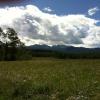
Introduction to Dzogchen Retreat with B Alan Wallace
Jeff replied to konchog uma's topic in Buddhist Discussion
On not dreaming, I have not specifically read this in CNN's books, but as CT says, I thought it was common knowledge. Dreams are normally based on our unconscious. A big part of any path is effectively pulling the unconscious "into" the conscious. With the integration, one has control over their sleep. I can consciously control whether I dream or not. The body sleeps, but the mind resides in silence. But, I will look for specific CNN comments around it, if I find any I will get back to you. Regarding dreams in general, CNN tells many stories about insights coming from dreams of primordial Buddhas in "The Supreme Source", also as said by others, Dream yoga is part of Dzogchen. Here is an example from "The Supreme Source"... In the story of Garab Djorie... "he had marvelous dreams that predicted the appearance of the teaching "beyond effort"... When the king of the devas came to know this, he emplored the Buddhas to promulgate the teaching... From his heart Vajrasattva emanated Vajrapani... " Notice also the heart emanation point (for Alwayson). But, your point is valid, at this point I do not have any direct quotes for CNN directly referencing the dream connection. I was just assuming since the other two primordial paths use/experience it. If I find specific quotes detailing it, I will pass them on. P.s. CT your wise words are always appreciated (no butting in )- 451 replies
-
- Alan Wallace
- Dzogchen
-
(and 1 more)
Tagged with:
-

Introduction to Dzogchen Retreat with B Alan Wallace
konchog uma replied to konchog uma's topic in Buddhist Discussion
first of all, please show me where the written words of Norbu Rinpoche validate this: specifically the part about the mind of the recipient translating direct transmission into a dream or astral experience.. but Especially about people of high consciousness not dreaming. that is the part i contest, and if you can back it up, my point is moot.- 451 replies
-
- Alan Wallace
- Dzogchen
-
(and 1 more)
Tagged with:
-
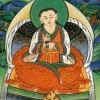
Introduction to Dzogchen Retreat with B Alan Wallace
RongzomFan replied to konchog uma's topic in Buddhist Discussion
We have dream yoga. ChNN has a book in 2 editions on this. Again, the book is for those with transmission.- 451 replies
-
- 1
-

-
- Alan Wallace
- Dzogchen
-
(and 1 more)
Tagged with:
-

Introduction to Dzogchen Retreat with B Alan Wallace
Jeff replied to konchog uma's topic in Buddhist Discussion
How it is experienced is dependent on the "clarity" of the recieving person. Most do not have the capacity to consciously percieve the transmission, so the mind unconsciously translates it into a dream. Someone with greater clarity would experience seeing (and possibly hearing) the guru in deep consciousness (or astral). Someone with high clarity would directly receive the knowledge (but would not see anything). In general, those with high levels of clarity do not dream (they have made the unconscious conscious). If one does not "receive" transmission, it is either because they have not yet reached the clarity to do so, or the "transmitter" is not yet a true master, and only a teacher.- 451 replies
-
- Alan Wallace
- Dzogchen
-
(and 1 more)
Tagged with:
-
The likes of Plato were said to have studied in Egypt but not Alexandria. Rhacotis was chosen by Alexander as the result of a dream influenced by reading Homer and (more likely) because it was a deep water port suitable for habourage for sea going ships. he is said to have laid out the ground plan for the city himself and deliberately made it a Greek city and cultural centre. there were of course Greeks in Egypt long before this ... and Egypt had by then been conquered by the Persians anyway. Rhacotis was said to be small and insignificant especially compared with the previous capital Naucratis. I think the idea that Pythagoras was Chinese is influenced by a very similar Chinese proof of Pythagoras' theorem in China. But of course as Pythagoras' theorem is true a similar geometric proof does not mean that the same person formulated them. There is absolutely no doubt that Egypt influenced the Greeks enormously. Since it was already so ancient by the time they were formulating the ideas for which they became famous. The Egyptians regarded them as child-like with restless minds. One of the reasons that Egypt became the conduit for wisdom from the ancient world is that it survived the collapse of the late bronze age. In around 1200 BC the other extant civilisations the pre-classical Greeks, the Hittites and the MInoans were wiped out possibly by natural disasters but definitely by attacks from the so-called Sea People. The Sea People were a group of nine tribes who marauded the Mediterranean coast during this time. By the time they got to Egypt though, the then king Ramessses III was ready and he trapped them in a river estuary and destroyed them ... thus saving Egypt from the same fate as the other great Bronze Age cultures. Little is known about the fate of the surviving Sea People ... although they had become a spent force and no longer a threat. Egyptian records indicate that one of the tribes went to the Levant and became the Philisitines (Palestinians) ... so we have to assume that the Sea People were semitic although it is speculated they originated in the area of Sardinia. What eventually did for the Egyptians was of course Christianity or more particularly the Christianised late Roman Empire. Strangely Christians like to paint themselves as the great civilisers and preservers of culture and reason. Whereas they were completely the opposite - the Taliban of their day - they burned down the Serapeum in Alexandria where the remnants of the great library were housed, they closed the temples and desicrated them. They did their best to destroy our legacy. But even as they did so ... in Egypt the new Christian churches and the saints worshiped in them took on some of the features and powers of the old gods. If you take for instance the imagery of Mary and Child Jesus this is a copy of Isis and Horus and so on ... so despite the attempted cultural genocide by the Christians somehow the influence persisted.
-
Stop hurting yourself and others, stop suffering, wake up. When you begin to question your dream, awakening will be not far away. Sri Nisargadatta Maharaj
-
And just how can a potion guarantee poverty? bestowed with hunger but guaranteed good health?? my bullshit detector would wake me up from such a dream
-

Introduction to Dzogchen Retreat with B Alan Wallace
konchog uma replied to konchog uma's topic in Buddhist Discussion
right, i can see the point that jhanas are an exercise in conceptual mind, but even as such they are tools on the path to liberation, and the insight generated when one comes out of them is really what one is after, not the bliss state itself anyway. At first i thought to myself that the argument was dodgy because anything you talk about with words is capable of being labeled conceptual and dismissed, its a common daoist copout, which i pointed out to aaron (right before i put him on ignore) but thats got nothing to do with my point. As i read on in that thread, i understood where malcolm was coming from, which is admittedly a place of deep integrity and perfectionism, which i think are good for practice. And even if they are solely mental, (which i am not sure of, having not attained them yet, but i doubt from my studies, and i don't think malcolm knows from experience) i don't think that that discounts them. There are whole schools of buddhism (yogachara) that would say that the bliss of the body is a dream without substance, nothing but nebulous mindstuff if anything at all. So thats not the dzogchen view, which is malcolms, but its a well-accepted interpretation of the buddha-dharma. So i don't know where all the hair-splitting gets anyone.. if someone attains jhana it means they are meditating well, and if someone isn't interested in attaining jhana, thats their business, but in no case is jhana an obstacle to realization, or even emptiness, as it can give one the insight to gain realization of emptiness in the absence of the five hindrances and with the insight generated by jhana. i don't think that the realization generated by the jhana state and its insight is necessarily conceptual, hence shakyamuni teaching it as a means to realization of the true nature of reality and self ho hum bedtime- 451 replies
-
- 1
-

-
- Alan Wallace
- Dzogchen
-
(and 1 more)
Tagged with:


